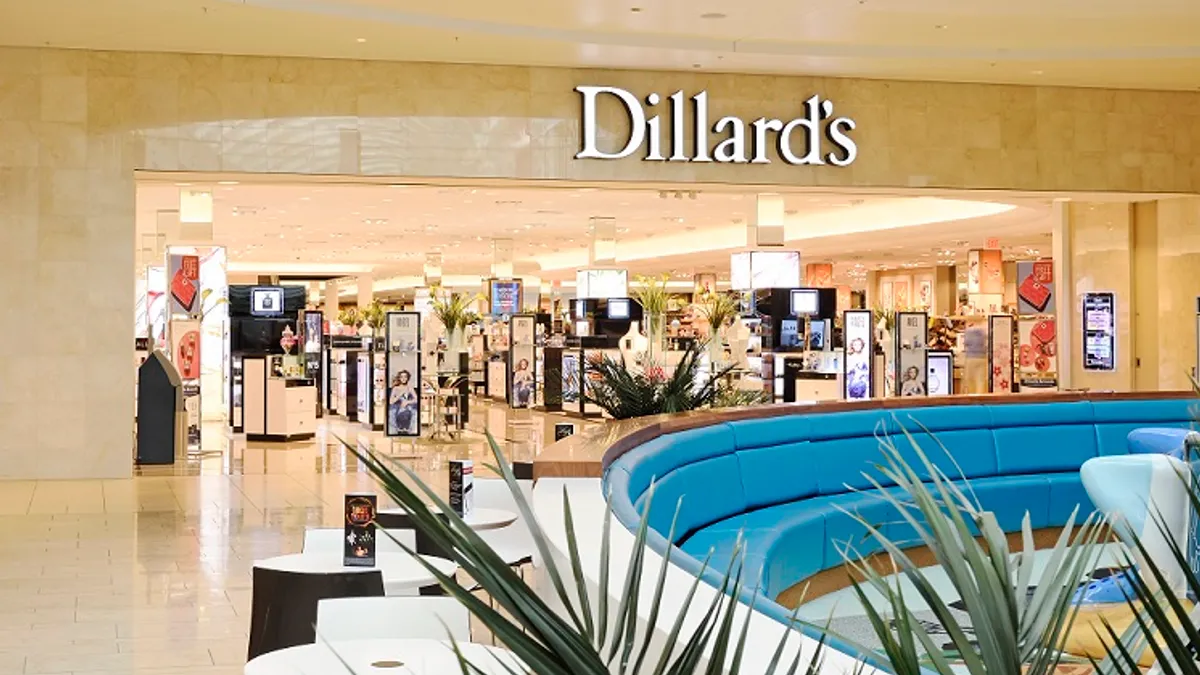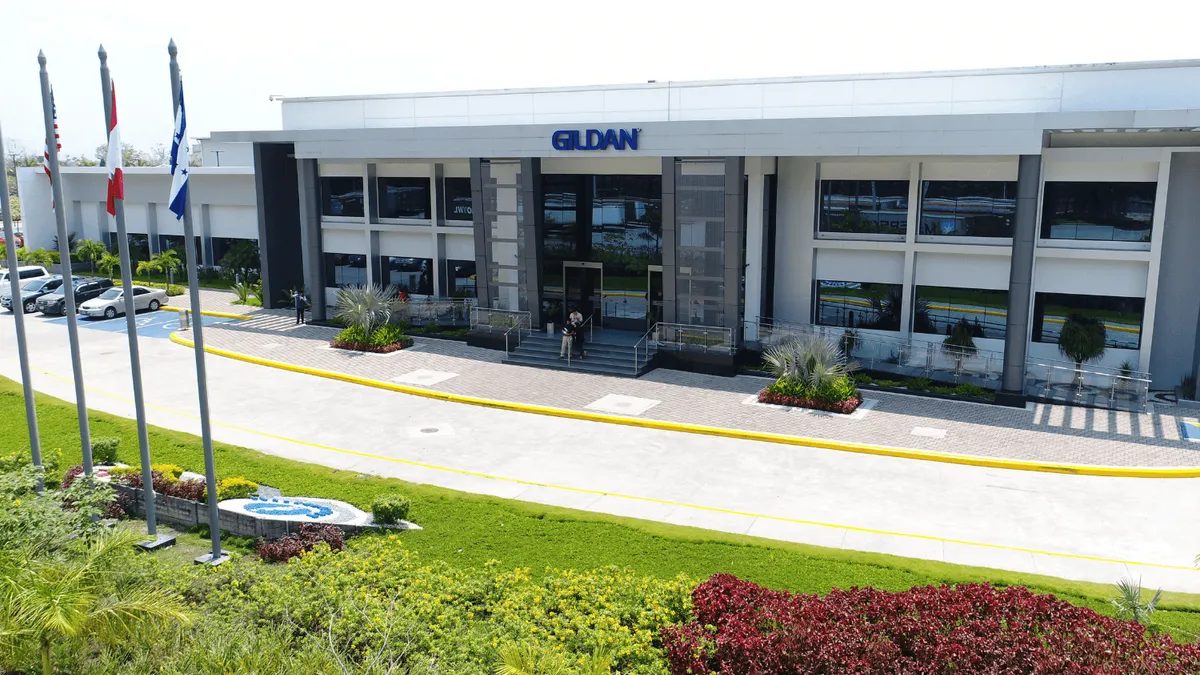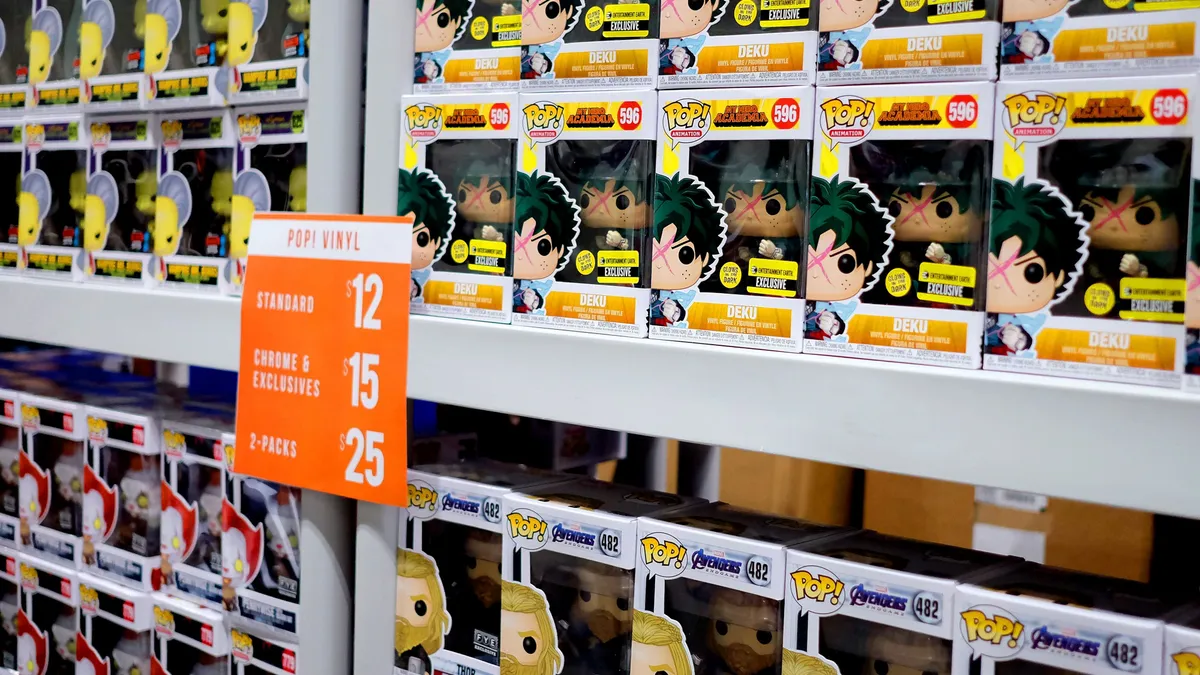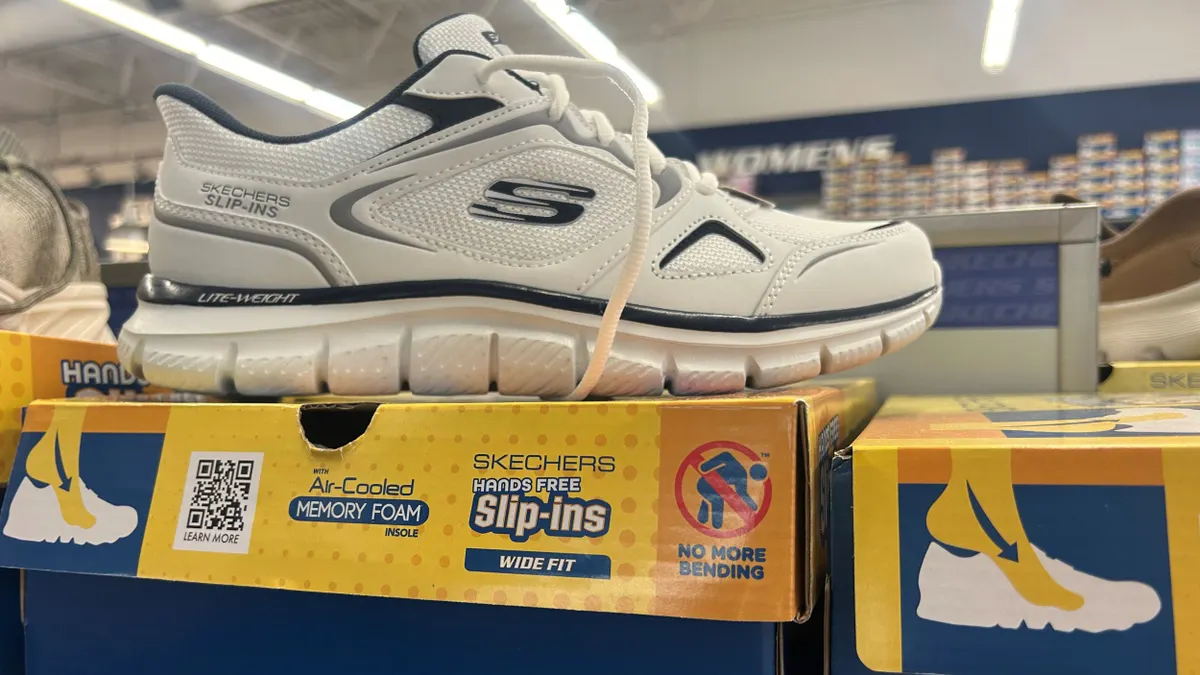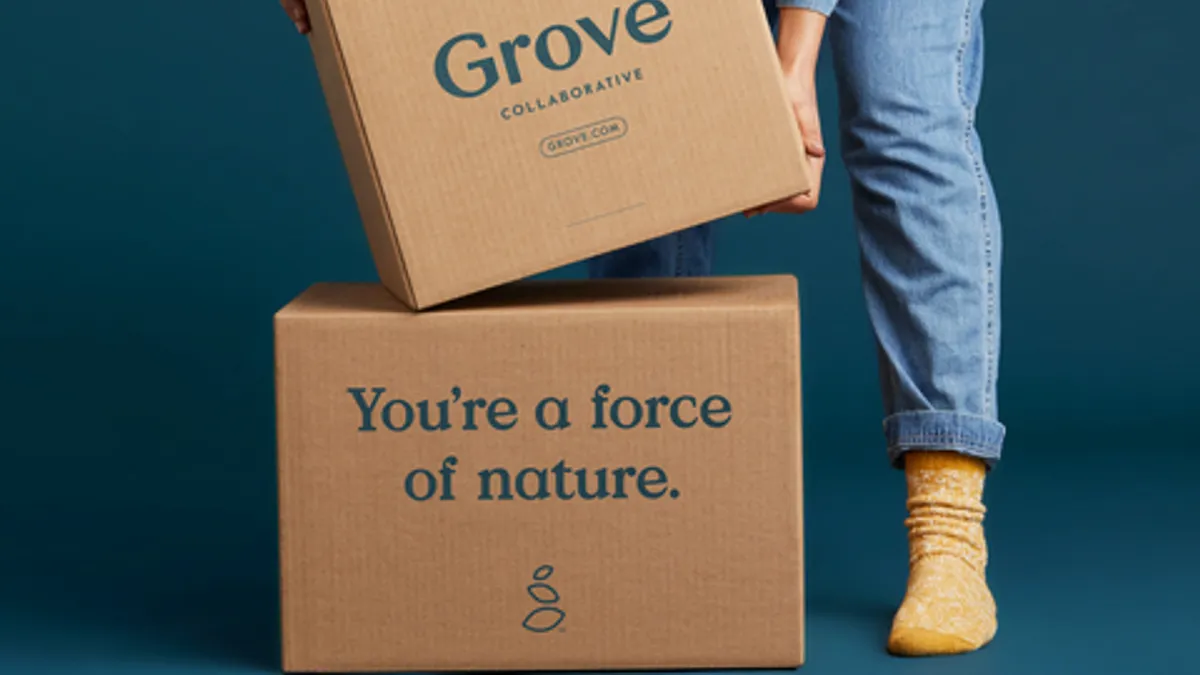The following is an update to Retail Dive's 2018 series on private equity investment in the retail industry. The project tracked more than 120 acquisitions going back to 2002 and analyzed data provided by PitchBook, Debtwire, Bankruptcydata.com, Moody's and other sources, including Retail Dive's own research.
In April, Staples' private equity owner, Sycamore Partners, paid itself a $1 billion dividend ahead of a possible IPO for the office supplies giant. It was paid for through a loan that will, as these things go, stay with Staples and add $130 million in annual interest costs. Bloomberg noted the size of the debt-financed dividend to Sycamore "left even seasoned leveraged-buyout experts agog."
The eye-popping figure grabbed headlines, but it is a relative footnote in the history of private equity's checkered relationship with the retail industry. Wall Street financial firms have poured tens of billions of dollars into the industry over the past decade and a half to acquire more than 120 retailers. Those deals were often made through debt-fueled buyouts that left retailers vulnerable to changes in the market. And there have been some serious changes in the retail market of late.
While there are some notable success stories — such as Burlington, BJ's Wholesale and Dollar General — there have also been more than two dozen bankruptcies of private equity retail acquisitions over the past 15 years, according to Retail Dive's analysis.
Current or formerly private equity-owned retailers filled out the ranks of bankruptcies in the early months of 2019. Of the major retailers that have gone into bankruptcy this year tracked by Retail Dive, 80% were owned by private equity companies or had been in the recent past.
They were: Shopko, Charlotte Russe, FullBeauty Brands, Things Remembered, Beauty Brands, Z Gallerie, Payless ShoeSource and Gymboree. (Payless and Gymboree were both private equity-owned going into their 2017 Chapter 11s, after which lenders took control.)
The CEO of one of those retailers, Z Gallerie, even noted when filing for bankruptcy that its "overall performance has declined significantly" since its 2014 acquisition by private equity firm Brentwood Associates, with those declines "self-imposed," including a failure to invest enough capital in e-commerce.
'You can't outrun debt'
Those are the retailers that have already folded or been forced to reorganize this year. Moody's currently rates 12 retailers as distressed, defined as carrying Caa and lower ratings, which indicate a higher risk of default. (We have excluded food retailers.) Of those distressed retailers, nine — or 75% — are private equity-owned, according to Retail Dive analysis. Their ranks include household names, such as PetSmart — the largest private equity buyout in retail history — and Neiman Marcus, which has been negotiating with lenders to extend its debt maturities.
"When you look at the definition of leveraged buyout, what's the first word that you see? These companies start below the eight ball," says Moody's retail analyst Charlie O'Shea. "When you load retailers with leverage, you're taking a risk."
Private equity-owned retailers in distress
| Retailer | Private Equity Owner | Acquisition Year | Moody's Rating |
|---|---|---|---|
| Academy Sports + Outdoors | KKR | 2011 | Caa1 |
| Guitar Center | Ares Management | 2014 | Caa1 |
| PetSmart | BC Partners | 2015 | Caa1 |
| J. Crew | Leonard Green & Partners | 2011 | Caa2 |
| David's Bridal | Clayton, Dubilier & Rice | 2012 | Caa2 |
| 99 Cents Only Stores | Ares Management | 2011 | Caa2 |
| Indra Holdings | Freeman Spogli | 2014 | Caa3 |
| Neiman Marcus | Ares Capital | 2013 | Caa3 |
| TOMS Shoes | Bain Capital | 2014 | Caa3 |
Source: Moody's, PitchBook, Debtwire, Retail Dive Research. Editor's note: Ares Management is a subsidiary of Ares Capital.
With data from PitchBook, Debtwire, Bankruptcydata.com and our own research, Retail Dive has compiled information on 125 private equity acquisitions going back to 2002 of retailers that are relevant to the publication's coverage. The list is not complete, and is continually being added to.
Of those acquisitions, 26 — almost 21% — have filed for Chapter 11 at some point. That rate is higher than it was in November, when Retail Dive first crunched the numbers.
"The common theme is the balance sheet," O'Shea said. "You can't outrun debt. Debt always wins."
In this view, debt makes the retail market — which O'Shea says today is as competitive as he's ever seen in his years as an analyst — all the more dangerous. He offers Toys R Us up as a "poster child" for what a leveraged buyout can do to a retailer. "Toys was a very solid company, a very solid brand. ... It seemed like every year Walmart and Target tried to kill these guys, but they couldn't," O'Shea said.
But the leveraged buyout in 2006 by a private equity group, which included Bain Capital and KKR, left the toy seller with billions of dollars in debt that hurt its ability to compete and its margin for error. O'Shea noted that Toys R Us had a relatively strong core business even ahead of the bankruptcy. (It reported positive earnings from operations through its final years before filing.)
Even so, the company's creditors were ultimately unable to agree on a plan of reorganization and saw more value in the retailer's remaining assets than it did in the business. And like that, Toys R Us was no more.
Extracting value
Private equity acquisitions took a dip after 2016, according to previous Retail Dive analysis. That was a year when bankruptcies in the industry began to accelerate, and it preceded a record-breaking year that outpaced the recession-era pace of retail bankruptcies.
Late 2018 saw a global financial selloff that was "disastrous" for the financial markets that typically finance private equity buyouts and led to a decline in merger activity, said Will Caiger-Smith, associate editor for leveraged finance at Debtwire. Since then, the "bankers whose job it is to make sure there's a steady supply of new loans to investors have been scrambling to make up the shortfall," he said
The Staples deal — which came not even two years after Sycamore took the company over in retail's third-largest buyout — is at least one sign Wall Street is still not shy about adding debt onto retailers even after the waves of bankruptcies.
Sycamore has already seen one of its retail acquisitions — women's shoe and accessories seller Nine West — go into bankruptcy. The financial machinations that left Nine West laden with debt after Sycamore's leveraged buyout of the Jones Group was a source of conflict in that Chapter 11 case. (Sycamore declined through a spokesperson to comment for this article.)
Sycamore is not alone. The private equity owners of Payless, Toys R Us and others have come under scrutiny in bankruptcy cases over allegations they moved money out of those retailers and into their own pockets. Payless owners Golden Gate Capital and Blum Capital were sued by the retailer's creditors over $400 million in dividend transactions that added debt onto the shoe seller, similar to what Sycamore did with Staples. The private equity firms settled the suit.
But if Staples is any indication, private equity hasn't been subdued by the court tussles. One reason may be that, as Craig Solomon Ganz, a partner with law firm Ballard Spahr, noted, it is difficult to prove in court that a private equity firm knowingly ran a company into the ground while stripping out value for itself.
Moreover, the current loan and bond terms tend to favor private equity companies over lenders. "What that means in practice is, even if you buy a company and it doesn't perform as you had hoped, or you failed to turnaround its sales or revitalize its business, you still have a lot of tricks up your sleeve to extract value from the investment" because financing terms are beneficial for private equity firms' interests, Debtwire's Caiger-Smith said.
Still in the game
As for defaults and bankruptcies, investor money on both the lending side and in private equity funds still needs somewhere to go. And retail may still be attractive, despite the recent Chapter 11s.
"If there's an accretive process that they can underwrite for their credit folks, then yes, they're still in the game for these things," Ganz said. "But I think the days of where they were buying them with a little less due diligence and a little less credit analysis, because they saw some cash flows and they saw that they could — legitimately, not fraudulently — pull out some of their equity out of it and get a good return for investors on the short term, I think those days might be gone. Because it's not as much of a short-term play."
And those Chapter 11s don't necessarily mean that a private equity owner lost its investment. "It's absolutely possible that a private equity firm could still generate a return even in a deteriorating situation," said Debtwire senior retail analyst Philip Emma.
He noted private equity firms, in addition to their equity stake in a company, will often also buy some of its debt, adding another way to profit, along with real estate and business unit spin-offs, all of which can provide sources of profit beyond selling the acquired company.








